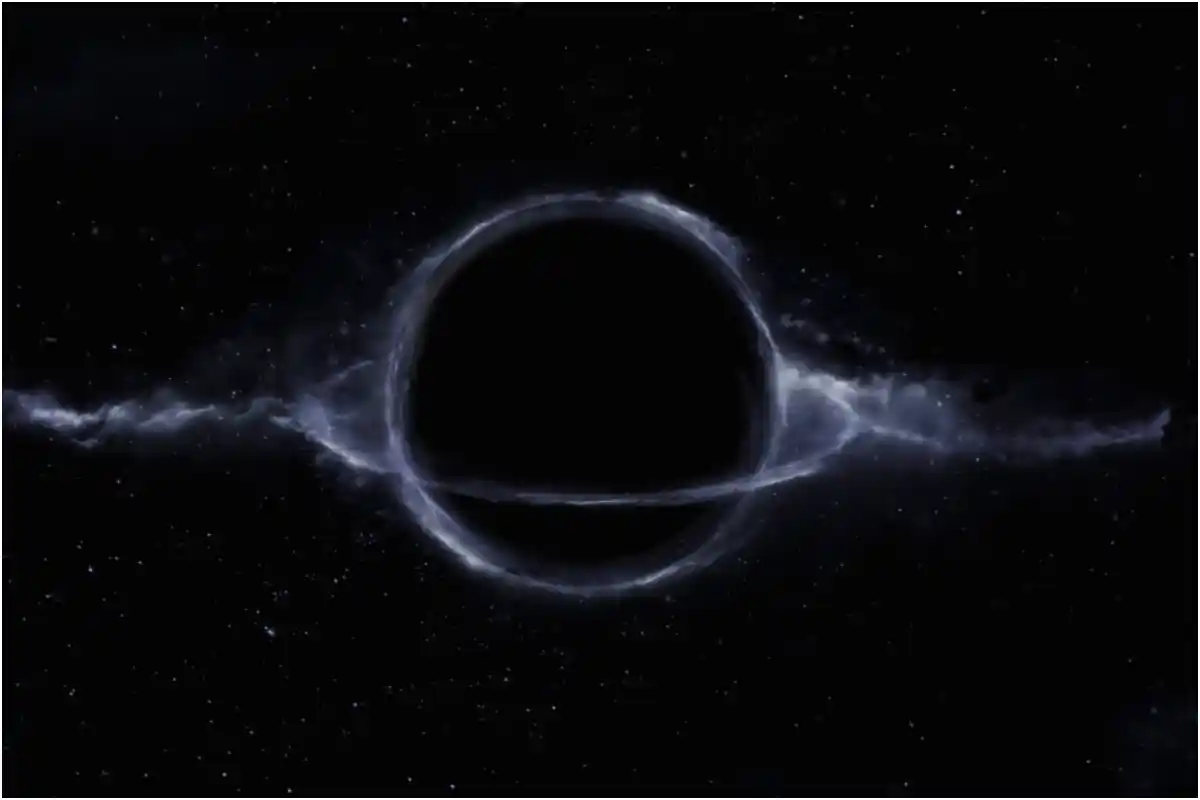Scientists Baffled by spotting lone black hole drifting through space

Scientists Baffled by spotting lone black hole drifting through space
In a remarkable breakthrough, astronomers have detected a lone black hole quietly drifting through our galaxy—without any accompanying star, a discovery that has left the scientific community both stunned and intrigued.
This rogue black hole, estimated to be around seven times the mass of our Sun, was found approximately 5,000 light-years away in the Sagittarius constellation. It remained invisible until researchers noticed a rare gravitational lensing event—where light from a background star was warped due to the black hole’s intense gravity.
Black holes, known for absorbing all light, are typically identified by observing their interaction with companion stars. However, this instance marks the first time scientists have detected one roaming solo—thanks to a near-impossible alignment with a distant light source.
The journey to this finding began in 2011, when experts at the Space Telescope Science Institute noticed unusual star movements in the sky. Over the next six years, they meticulously studied the gravitational distortions using data from the Hubble Space Telescope and Gaia mission. By 2022, the evidence strongly supported the object’s identity as a black hole, and not a neutron star.
Dr. Martin Dominik of the University of St Andrews, the study’s lead author, stated: “Einstein did it again – black holes remain invisible, but their gravity reveals them.”
According to their published study in The Astrophysical Journal, the black hole is racing through space at about 114,000 miles per hour—a speed scientists attribute to a “natal kick” from the asymmetrical explosion of the star that birthed it.
This finding supports long-standing theoretical estimates suggesting there may be up to 100 million solitary black holes in the Milky Way, previously undetectable due to their lack of luminous companions. With future tools like the Nancy Grace Roman Space Telescope set to launch in 2027, astronomers hope this discovery is just the beginning of identifying more elusive dark wanderers of the cosmos.
This groundbreaking detection not only confirms Einstein’s predictions on gravitational warping but also opens a new window into understanding the hidden mass of our galaxy.
Catch all the Trending News, Breaking News Event and Trending News Updates on GTV News
Join Our Whatsapp Channel GTV Whatsapp Official Channel to get the Daily News Update & Follow us on Google News.














